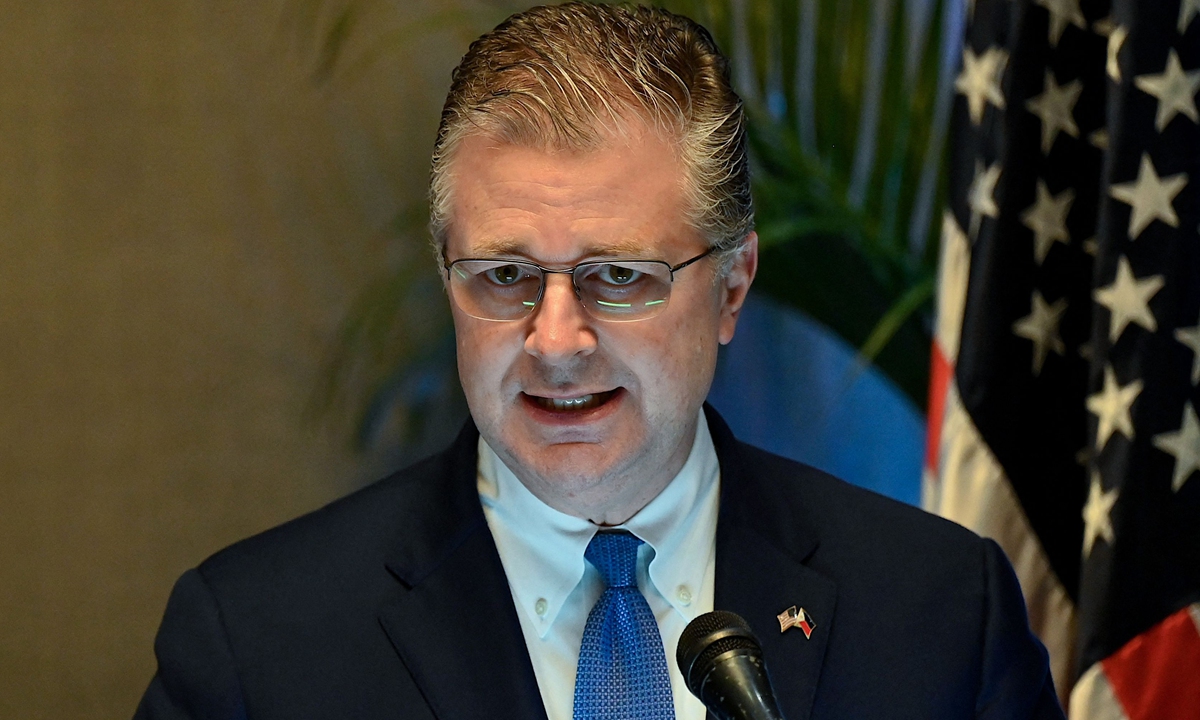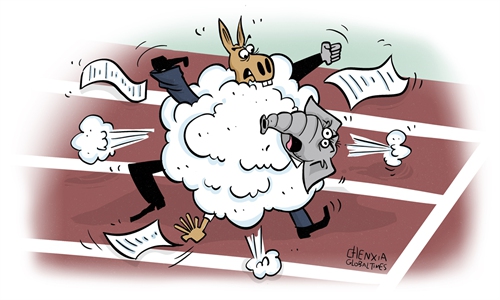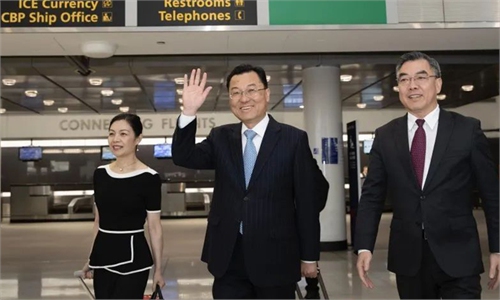Trip by US senior official to China driven by interests rather than goodwill: experts

Assistant Secretary of State for East Asian and Pacific Affairs Daniel Kritenbrink Photo: VCG
A senior US State Department official is reportedly to have arrived in Beijing on Sunday, in what has been described by some Western media as Washington's latest efforts to "boost communication" and "ease tensions" with Beijing. Some Chinese observers believe that the trip is driven by the US' own interests rather than by its goodwill, and they see little sincerity from Washington in improving US-China relations.
Assistant Secretary of State for East Asian and Pacific Affairs Daniel Kritenbrink will travel to China and New Zealand from Sunday to June 10, and will be joined in Beijing by national security official Sarah Beran to "discuss key issues in the bilateral relationship," read a statement from the US State Department seen on Saturday.
Some media reported that Kritenbrink's trip followed a "secret visit" made by CIA director William Burns to China in May, which was seen as "part of efforts to keep open channels" between the two countries' intelligence communities. The Financial Times described Burns' visit as "Washington's push for high-level engagements with Beijing to stabilize the relationship."
The US has been trying to create an image as a responsible country by delivering a "goodwill message" to the outside world that it has been seeking communication with China, and trying to shift the blame to China for "the lack of communication" or "refusal to communicate," said some Chinese experts, who believed that these tactics will not be conducive to improving bilateral ties when the US continues its provocative acts and its words are not matched by its deeds.
Kritenbrink's official meetings are scheduled on Monday, Reuters reported, citing a US State Department spokesperson. While senior officials such as Kritenbrink and Burns seek to maintain open lines of communication with their Chinese counterparts, US Defense Secretary Lloyd Austin rebuked China on Saturday for refusing to hold military talks, according to the media report.
"The visit by US officials is not driven by goodwill but by its own interests," Li Haidong, a professor at the China Foreign Affairs University, told the Global Times on Sunday.
The US is trying to deliver this message to its allies that its China policy aims to seek rivalry rather than conflict, but at the same time, it hopes that China can meet as many of its requirements as possible on major international and domestic issues in the US, Li said.
During the ongoing IISS Shangri-La Dialogue, Lieutenant General He Lei, former vice president of the Academy of Military Sciences under the PLA, also disclosed details about China's refusal to meet Austin at the defense gathering, emphasizing that military-to-military exchanges between China and the US have not stopped.
In May, Austin said he wanted to seize the opportunity of the Shangri-La Dialogue to hold talk with our defense minister, and we have patiently waited for a month for the US side to lift the sanctions, but it did not lift those obstacles, He noted. On May 29, we announced there wouldn't be a meeting between the Chinese and US defense ministers, showing the firm principles of the Chinese side, the lieutenant general said.
In fact, the remaining sanctions are a minor factor, and the bigger one is the current environment in which the US has continued to trample on China's bottom line and undermine its core interests, leading US-China relations to continue spiraling downward. Under such circumstances and without the proper conditions, any talks would be meaningless, He said.
"Amid tense China-US relations, the US side is trying to shift the blame to the Chinese side by showing that their senior officials are seeking dialogue, meanwhile, it has continued to pressure its allies to follow its steps in containing China," Lü Xiang, research fellow at the Chinese Academy of Social Sciences, told the Global Times on Sunday.
Although there is still a window of opportunity to improve bilateral relations before the US presidential elections take place, some experts have great doubts as to whether the US side can inject some positive energy into US-China relations.
"The US has been seeking dialogue while continuing to be provocative. We haven't seen any positive statements from the US concerning the core interests or bilateral relations," Lü said.
Also, as a professional diplomat, Kritenbrink will only follow orders from his superiors, and we don't expect him to give "any breakthrough performance", and this should only be seen as an engagement at the working level, Lü noted. "Still, there's a slight chance it will pave the way for higher level engagement between the two sides."



